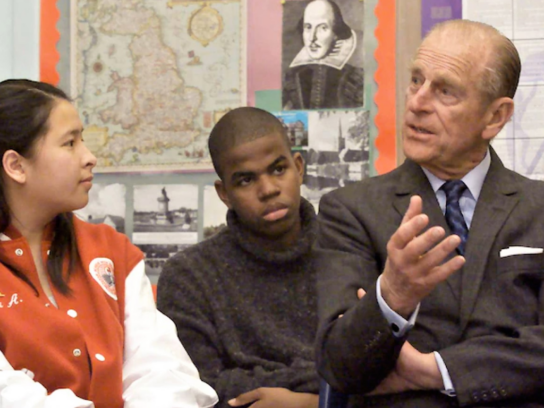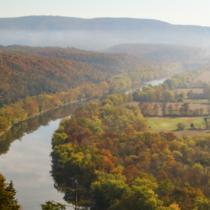
If you read my previous two articles on Prince Philip, you might think that I join with many other members of the press, who enjoyed taking potshots at the Prince.
Nope. Despite his having no official political power, Prince Philip was IMHO one of the greatest public servants and leaders of the last 100 years. I will prove it here.
Let’s first establish a zero to ten public service and leadership scale. We can reasonably put mass murderers like Hitler, Stalin and Mao at the bottom, and, say, Winston Churchill and FDR at the top.
Now let’s rate the public service life of Prince Philip. First of all, it was LONG. Philip began serving the public at age 18 when he joined the Royal Navy in 1939. He served as a naval officer, Duke and Prince until he retired in 2017 — 78 years. After his “retirement” he kept up many charitable memberships until his death in April 2021, so let’s give him partial credit, two more years, for a nice round 80 years of total public service! By contrast, FDR served only 34 years. (A word to the wise – one of the reasons Philip lived so long was that he did the famous 11-minute Royal Canadian Air Force exercises every morning.)
Second, consider Philip’s difficult childhood. Although his family was royal, his childhood was a mess. He was evacuated at age one from his native country. His father decamped, his mother was institutionalized with schizophrenia, and he was raised by older relatives and boarding schools. But he overcame these handicaps to become a “polite, charming” young man.
Third, he was no “slacker.” As Prince, he completed 22,210 solo engagements, and made 5,493 speeches! He saved his ship during World War II, was mentioned in dispatches (a rare honor), and received the Greek War Cross and the French Croix de Guerre. He served in six different naval vessels, ultimately rising at just age 29 to command his own ship (another rare achievement). He earned combat campaign medals for service in the Atlantic, Africa, Italy, Burma and the Pacific. Later he served as Captain General of the Royal Marines, Marshall of the Royal Air Force, Field Marshall of the Royal Army, and Lord High Admiral of the Royal Navy.
Fourth, speaking of awards, Philip received an astounding 90+ orders, medals and decorations. Some of these were bestowed because of his princely status, but many were awarded for his leadership. His British awards included the Arctic Star, Royal Knight of the Garter, Knight of the Thistle, Knight Grand Cross of the Order of the British Empire, Member of the Order of Merit, and the Royal Victorian Chain.
Some of Philip’s more exotic foreign awards include Member of the Most Distinguished Order of Nishanizzuddeen (Maldives), Honorary Member of the Order of Darjah Utama Temasek (Singapore), Knight of the Order of the Elephant (Denmark), Knight Grand Cross of the Order of the Condor of the Andes (Bolivia), Member Special Class of the Order of Muhammad (Morocco), Knight Grand Cross with Chain of the Order of the Queen of Sheba (Ethiopia), and –my favorite — Royal Chief of the Order of Logohu (Papua New Guinea).
We stingy Americans could only muster Grand Commander of the Order of Maritime Merit of the San Francisco Port Authority.
Oddly, Philip has no awards from the Republic of Vanuatu (ex-New Hebrides), where he is worshipped as a god by the Prince Philip Tribe on the island of Tanna.
Harry Potter fans will be interested to know that Philip was a Knight Grand Cross of the Royal Order of the Phoenix.
Fifth, Prince Philip was a member, patron or sponsor of over 800 charities and service organizations. For example, he founded the Royal Academy of Engineers in 1976 and the Academy’s leading award is the Prince Philip Medal. This was recently presented to the 90-year-old black female engineer Gladys West, PhD of Virginia, whose mathematical modeling of the Earth facilitated the creation of GPS systems.
Philip’s patronage often reflected his forward thinking, for which he got little credit. For instance, he served as the early patron and president of the World Wildlife Fund International. WWF President Pavan Sukhdev said: “The Duke has been a tireless champion for the environmental cause and a passionate ambassador for conservation for decades, and helped chart the WWF’s course since its inception,” and he “visited and supported WWF projects in 50 countries on five continents.”
Perhaps Philip’s greatest achievement was creating The Duke of Edinburgh’s International Award program. This is open to 14- to 24-year-olds of any country, gender or background. There are four focus areas: voluntary service; sports; practical and social skills; and adventurous journeys.
The tailored Awards emphasize personal development and community service. They are proven to help develop youth’s self-confidence, admission to college, and life-long achievement. Over 6 million Awards in 168 countries over 65 years have been given, generating over 125 million hours of community service. The American branch aims to reach over one percent of all U.S. youth by 2026!
Hence, due to his incredibly long public service, tireless exertions and numerous achievements, I think Prince Philip should get at least a 9 out of 10 on our leadership/service scale, and should be recognized as one of the great leaders of the last 100 years.
Q.E.D.!
Photos courtesy Lew Toulmin
- Prince Philip, Duke of Edinburgh, late in life, wearing some of his many medals and decorations. One is the Burma Star with Pacific clasp, for service in the Pacific. Philip was first lieutenant aboard the destroyer HMS Whelp when it escorted the USS Missouri from Guam into Tokyo Bay for the surrender of Japan, and he was present at the surrender.
- Some of the 90+ awards to Prince Philip, presented on a cushion at his funeral: The Order of Merit (top left), The Royal Victorian Chain (top right) and Philip’s full-sized medal group (bottom). From left to right, these medals are: the Queen’s Service Order, New Zealand; 1939-1945 Star; Atlantic Star; Africa Star; Burma Star (with Pacific clasp); Italy Star; War Medal 1939-1945; King George VI Coronation Medal; Queen Elizabeth II Coronation Medal; Queen Elizabeth II Silver Jubilee Medal; Queen Elizabeth II Golden Jubilee Medal; Queen Elizabeth II Diamond Jubilee Medal; Royal Navy Long Service & Good Conduct; Canadian Forces Decoration; New Zealand Commemoration Medal; Malta George Cross 50th Anniversary Medal; Greek War Cross; and (French) Croix de Guerre with Palm. He had so many awards that they could not all be displayed at his funeral, for reasons of space!
- Prince Philip as a child, with a life of achievement ahead.
- Prince Philip and Queen Elizabeth in an official photo in 1950.
- Prince Philip in middle age, with his medals and Royal Air Force wings. He flew for 44 years, logging almost 6000 hours in 59 different aircraft types, including prop trainers, fighters, helicopters and commercial aircraft – a tremendous achievement. He served as Grand Master of the Guild of Air Pilots and Air Navigators.
- Logo of the Duke of Edinburgh’s International Award for youth, USA branch. The tailored award is given to youth 14 to 24 for achievements in skills development, athletics, public voluntary service and adventures and expeditions. The USA branch plans to reach over one percent of youth in this country in the next five years. The organization’s website is https://usaward.org/.
- Prince Philip with young awardees in the Duke of Edinburgh’s International Award program that he founded.
- Gladys West, PhD, 90 years old, of Virginia, recipient of the Prince Philip Medal awarded in 2021 by the Royal Academy of Engineers (founded by the Prince). She was a key “hidden figure” who did mathematical and engineering calculations which allowed the creation of GPS navigation systems. The photo shows her in the 1980s with colleagues at the US Naval Proving Ground in Dahlgren, Virginia, where she worked for 42 years. She was also the project manager of the first satellite system to successfully deliver data on a wide variety of oceanographic conditions, such as wave height, water temperature, winds and icebergs.
- The special military Land Rover TD5-130 designed by Prince Philip to carry his casket in his own funeral. His personal standard is draped over the coffin.












Comments are closed.